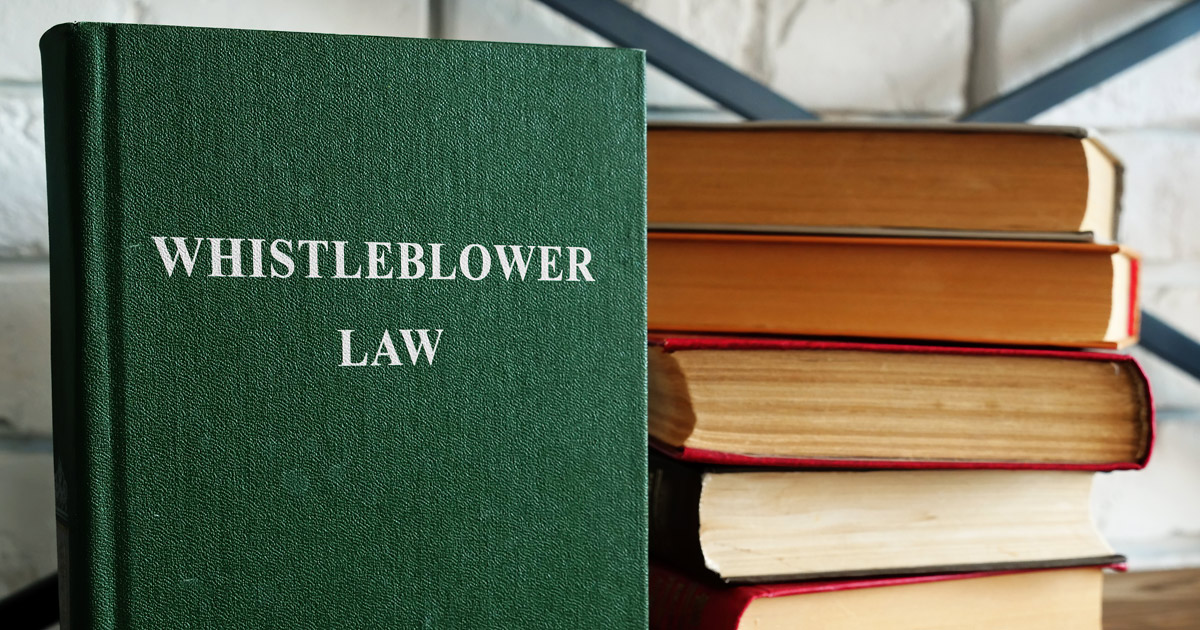Whistleblowers report acts of corruption, abuse, public health and safety hazards, waste, and fraud to those who have the power to remedy the problems. Most whistleblowers work within organizations that they report on, but being an employee is not always required. People who follow the right procedures for whistleblowing can receive certain protections and even rewards, and there are many federal, state, and local laws that might protect them, like the False Claims Act and the Pennsylvania Whistleblower Law.
The Pennsylvania Whistleblower Law applies to employees who work in a public body, like a state agency, division, commission, or other body in a state government’s executive branch. This law is also applicable to a city, county, township, school district, regional governing body, agency, or other body created by a state agency or authority. Employees who work for companies and agencies that receive government funding (Medicare, for example) are also covered by the Pennsylvania Whistleblower Law.
In Pennsylvania, a whistleblower is defined as someone who provides a good faith report of the misconduct either in writing or verbally. The information can be given to a manager, an agent for the employer, or another appropriate authority. Employees and others who are aware of wrongdoing often keep quiet because they fear retaliation; whistleblower laws exist to protect these individuals.
How Does the Pennsylvania Whistleblower Law Protect People?
This law offers two categories of protections for whistleblowers. One is to safeguard them before or during the reporting process, and the other is for when they are participating in an investigation. In Pennsylvania, people cannot be fired or threatened with being fired, nor can they be retaliated or discriminated against for these activities. These protections also apply to the employee’s compensation, privileges, location, terms, and conditions of employment.
Violations of the Pennsylvania Whistleblower Law should also be reported, and employees have 180 days to file a civil action in court following the violation. Successful cases can lead to damages being awarded to employees, such as reinstatement to the job, lost wages and fringe benefits, seniority rights, and other costs such as reasonable attorney fees.
Whistleblowers who act in bad faith will not receive the same protections under the law. There cannot be any malice or desire for personal benefit in the claim, and the whistleblower must also have reasonable cause to believe that their report is truthful. Employers are not barred from bringing disciplinary actions against employees who submit whistleblower reports in bad faith.
The Importance of Following Whistleblower Procedures
Whistleblowers who go out on their own often expose themselves to unwanted publicity and threats to their job security. Following the rules will help secure protections against those unpleasantries and can sometimes lead to financial rewards for helping prosecute wrongdoers.
Philadelphia Employment Lawyers at The Gold Law Firm P.C. Represent Whistleblowers
Whether you are thinking about becoming a whistleblower or have been retaliated against for doing so, one of our experienced Philadelphia employment lawyers at The Gold Law Firm P.C. can offer you sound legal guidance. Complete our online form or call us at 215-569-1999 for a free consultation. We are located in Philadelphia and Pennsauken, New Jersey and serve clients in South Jersey and Southeastern Pennsylvania, including Wilkes-Barre, Scranton, Northeast Philadelphia, Bucks County, Chester County, Delaware County, Lehigh County, and Montgomery County.





































